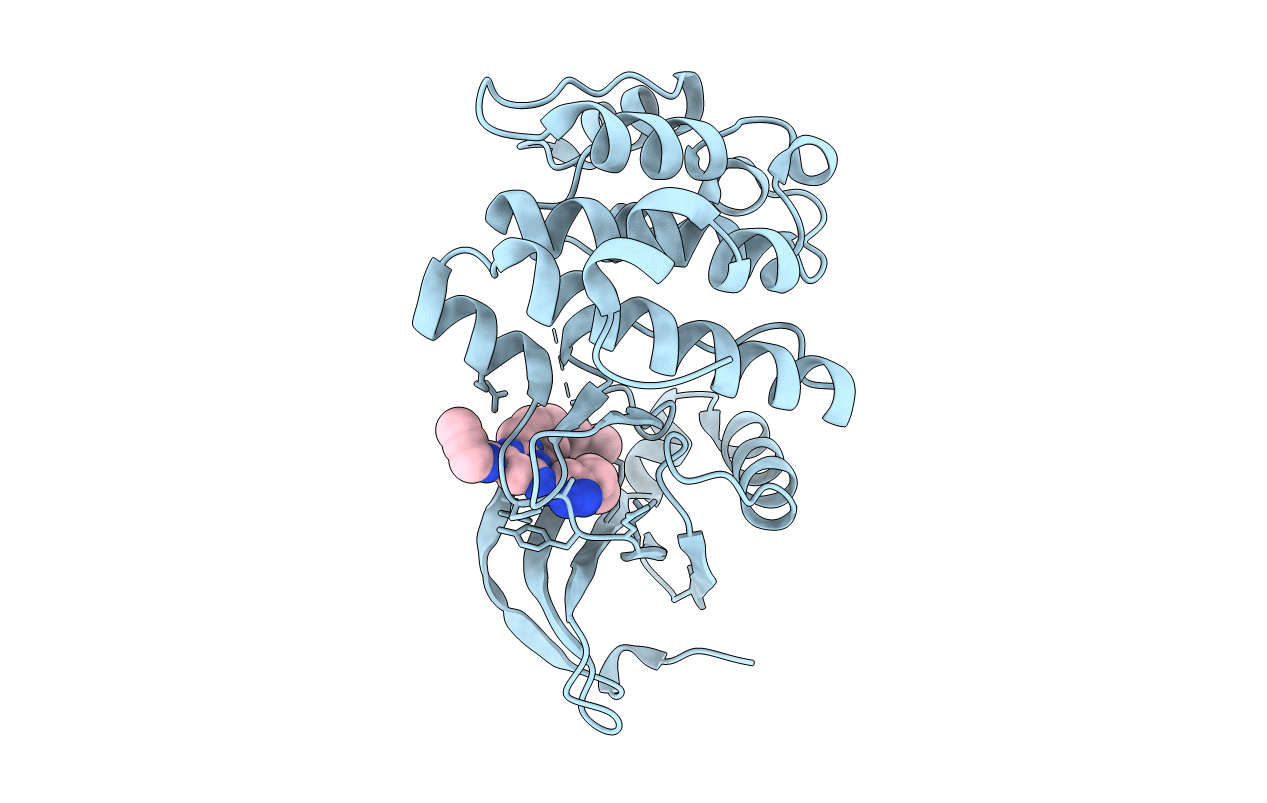
Deposition Date
2021-07-31
Release Date
2022-06-08
Last Version Date
2024-10-09
Entry Detail
PDB ID:
7FIC
Keywords:
Title:
Reversible lysine-targeted probes reveal residence time-based kinase selectivity in vivo
Biological Source:
Source Organism(s):
Homo sapiens (Taxon ID: 9606)
Expression System(s):
Method Details:
Experimental Method:
Resolution:
2.32 Å
R-Value Free:
0.27
R-Value Work:
0.23
R-Value Observed:
0.23
Space Group:
P 32 2 1


